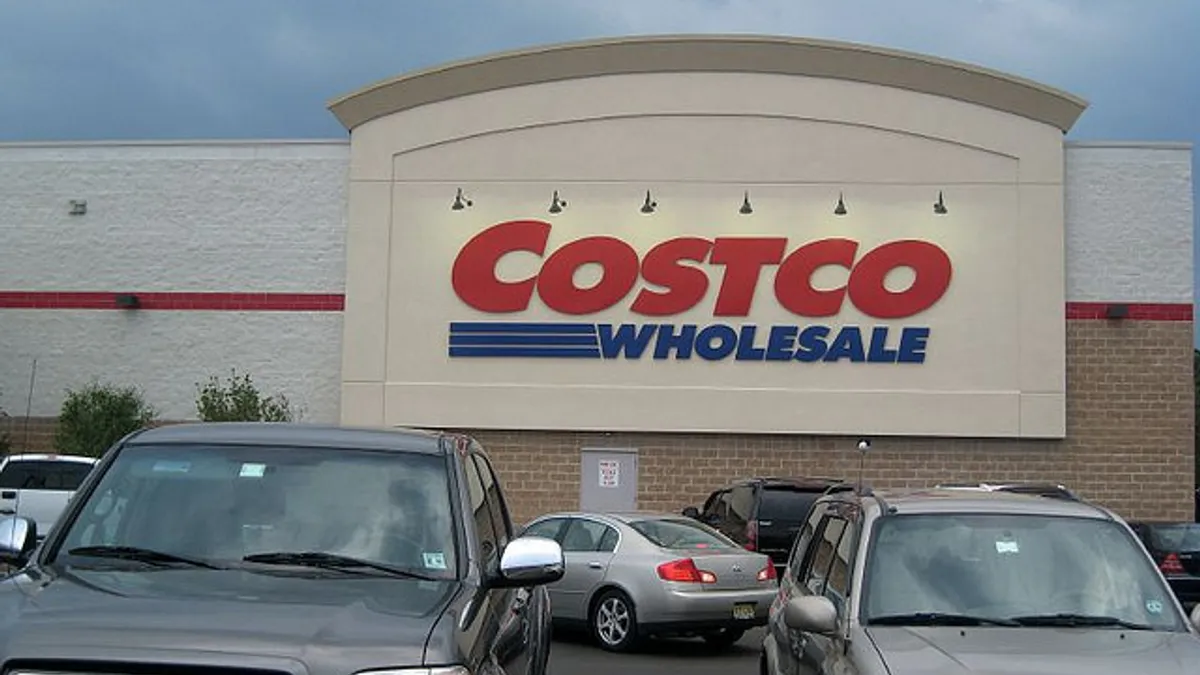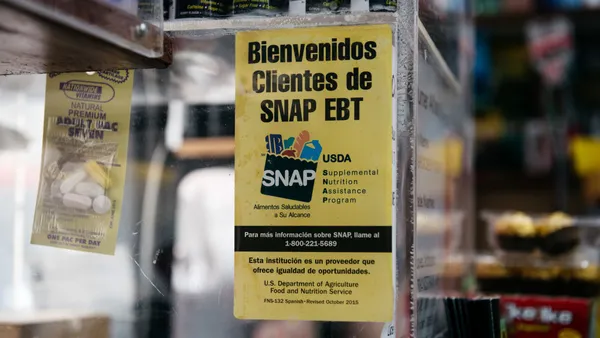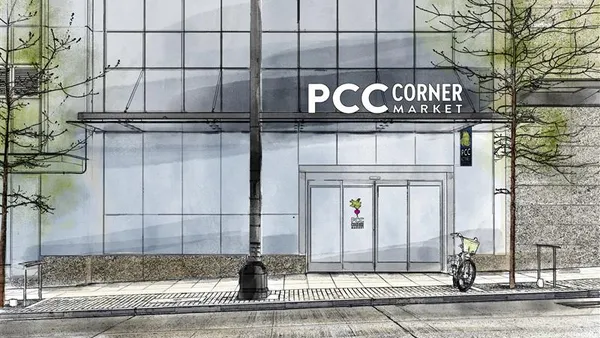Dive Brief:
- Costco is leading competitors when it comes to combating in-store theft, reporting that its shrinkage rate was just 0.11% to 0.12% of sales compared to the 1.33% that retailers on average lost in 2017, according to Business Insider.
- In its 2018 annual report, Costco said it mitigates theft through store layout, limited entrances and exits and its membership model, which helps the store control inventory.
- The retailer also attributes its low shrink to the wages it pays employees, which results in higher employee satisfaction and less theft internally.
Dive Insight:
In 2017 alone, shrink cost U.S. retailers $42 billion and it could be on the rise. In a 2018 study, the National Retail Federation found that 20% of retailers are experiencing profit losses of 2% or more as a result of theft, up from 2015’s average of 17.1%.
Security is a high priority for most retailers. In Seattle, Albertsons is committed to tackling the challenge of theft as its local stores experience an uptick in property crimes and rumors that it will have to shutter locations as a result. A recent op-ed from the grocer in the Seattle Times said that instead of closing its doors and retreating, neighborhood stores have instituted "Coffee with a Cop," and Albertsons is committed to creating union jobs and collaborating with local government and lawmakers to stay in operation.
Some retailers find shrink to be a continuous struggle, including Walmart. The largest retailer in the world reported a decline in gross profit rate due to higher rates of inventory shrink in its 2018 annual report, Business Insider noted. Walmart has reported that it loses 1% of its $300 billion in sales a year due to shrinkage, but is looking to change that with blockchain technology, which can help the retailer track virtually any aspect of a product from its origins to its contents.
Across the industry, retailers have tried to automate systems and tighten up their operations to prevent product loss. Aisle-scanning robots being piloted by Walmart, Schnucks and other retailers can track sales velocity and identify products with inaccurate price tags. In the Netherlands, Ahold Delhaize is piloting a system that discounts products as they reach their sell-by date.
Tech-based checkout options like self-checkout kiosks and scan-and-go could make it more tempting for shoppers to skip paying for some items, and retailers will need to reevaluate how they limit shrink and monitor theft activity. But new retail technology also adds the ability to more closely trace products and track shopper activity, so while people may feel it's easier to walk out without paying, retailers should have more tools available to reduce shrinkage.












